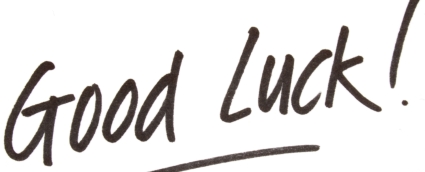First? I need to offer all of you an apology. I haven’t been blogging lately, because things have been a “bit” busy on this end. After my appearance in Indianapolis for GenCon, things slowed down a bit in September, but quickly picked back up. Why? Can’t talk about all of it, but I can talk about some of it. Blasted Non-Disclosure Agreements!
Halloween and White Wolf
As project manager for FlamesRising.com, every year we do something special for Halloween. Last year, we offered Halloween flash fiction from several authors including E.E. Knight, Matt Forbeck and Jess Hartley. This year, we decided to pitch a gaming-related idea to White Wolf Publishing. After some “tough” negotiations (*sarcastic*), I wrote and designed DEVIL’S NIGHT: a free Storytelling Adventure System Scene for the World of Darkness, which was released today. This type of release is “huge” for FlamesRising.com, because this is the first time we have partnered with a publisher to offer free gaming material on the site for fans. If you’re interested in reading more about the design process, check out this post entitled, “Devil’s Night: White Wolf, FlamesRising.com and your Free One-Scene.”
Today, Matt is going to be flying down to Atlanta for the International Camarilla Convention (ICC). This was a spur-of-the-moment trip that was made possible by White Wolf. With our trip to Las Vegas only a week away, we did some scrambling to ensure we had some great content for you on the site for Halloween. Special thanks to Jess Hartley who also pitched in this year. She wrote a great guest post entitled 13 Etiquette Tips for Halloween as part of her One Geek to Another series.
Upcoming Appearance at NeonCon in Las Vegas
Next week Thursday, I’ll be flying out to Las Vegas for NeonCon and…well…Vegas. I have been confirmed as a guest with Jess Hartley on the Women in Gaming panel. Even though I’m going to enjoy some time away from the computer, this will be a fun trip to reconnect with some of my friends in the industry.
Novel Revisions and Original Fiction
After I got back from GenCon, I had a panic moment. You see, I definitely want to continue writing for the gaming industry and pursue some media tie-in fiction opportunities, but I also want to leverage that with my original fiction. I have some breakthroughs on that front, and have gone back to start revising ARGENTUM. The novel isn’t coming along as well as I had hoped, and some last-minute projects have kind of taken over my brain. I know I need a vacation, which is why this trip to Vegas will be well-deserved.
Guest Posts on SFWA, Writing Groups and Crackle.com
I’ve started to expand my non-fiction guest blogging, so be sure to hop on over and read my guest posts by Monica Valentinelli on SFWA.org if you haven’t already. The folks over at SFWA.org are really doing some great things by keeping up on current events, so definitely bookmark the site and follow-up when you can. Also, I have a guest post going up on the Crackle.com site soon. I’m really excited about it, because it offered me the chance to get really detailed about a horror film, which is part of the reason why I started the Girls of Gore series on FlamesRising.com. If you enjoy that sort of detailed criticism, I recommend checking out some of Mary Robinette Kowal‘s or Ken Hite‘s non-fiction works.
In addition to guest blogging, I’ve been attending some local events for writers, too.
So That’s Life in Crazytown
So that’s what’s been going on in my neck of the woods. There’s a lot I can’t talk about, but let’s just say that I’m very excited about the next, few months for many reasons. First, “the day job” at my wonderful employer Musicnotes.com sheet music picks up as we head into the holiday season. It’s going to be frantic-but-fun as we ensure that we fulfill song requests for our customers and provide them with a great experience. Outside of work, I’m looking forward to the snow and cold weather. There are some long, wintry nights ahead and I’m definitely ready to sit in my writer’s cave and get some projects done.
The Favor I Need to Ask
Because I need to focus on paying gigs, I have to be more selective about my non-paying opportunities and time spent on social media. Please, please, please keep me updated with what you’re all up to. I enjoy reading about my fellow authors and game designers, and I hope that you have wonderful news to share as well.
Well, that’s it for me. Back to making brownies in the shape of ghosts and getting reading for another music-filled day. Take care!

 Three Tips For Getting Published from BubbleCow
Three Tips For Getting Published from BubbleCow